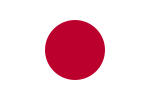| Part of a series on the |
| Culture of Japan |
|---|
 |
Radio broadcasting has been used in Japan since its debut in 1925 when three local stations in Tokyo, Nagoya and Osaka, forerunners of the public company NHK, received permission from the government to start broadcasting.
During World War II, radio programmes ended up reflecting the militaristic policies of the Japanese government and throughout the conflict, radio was an important propaganda weapon of the state. With the reform of the broadcasting system in 1950, NHK became an independent company supported by the licence fee paid by listeners, and at the same time the market for commercial broadcasting was liberalised. Thus the first private networks such as Japan Radio Network, National Radio Network, Japan FM Network and Japan FM League were born.
With the advent of television, the radio medium gradually lost its role as the main source of entertainment and information for the Japanese, and today only a fraction of the population listens to the radio frequently.